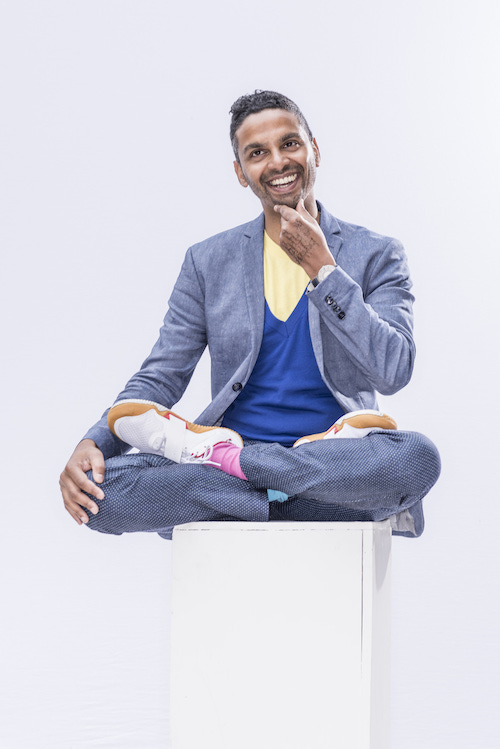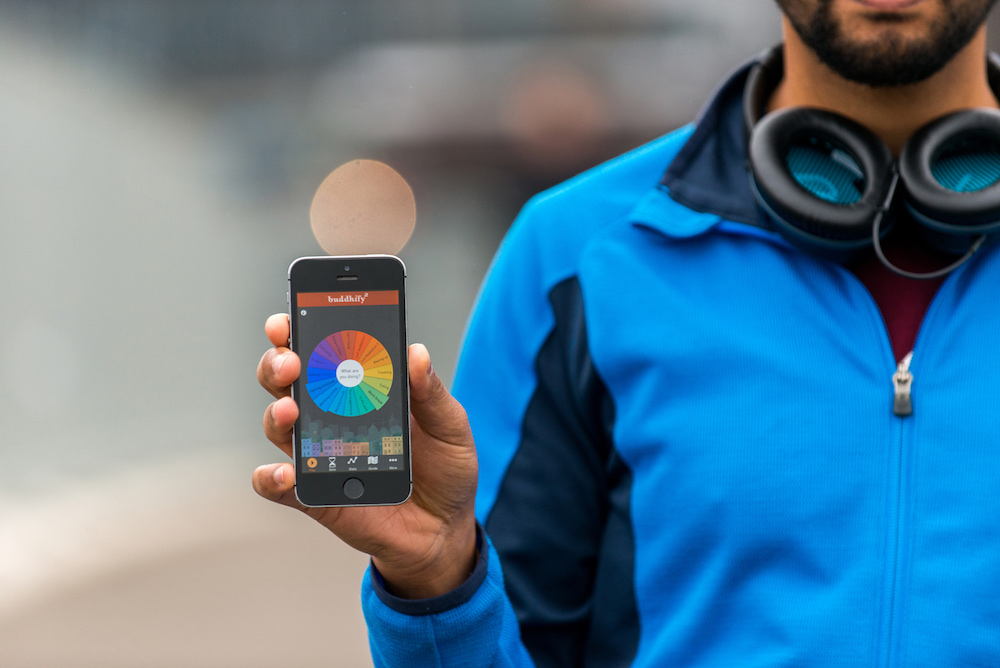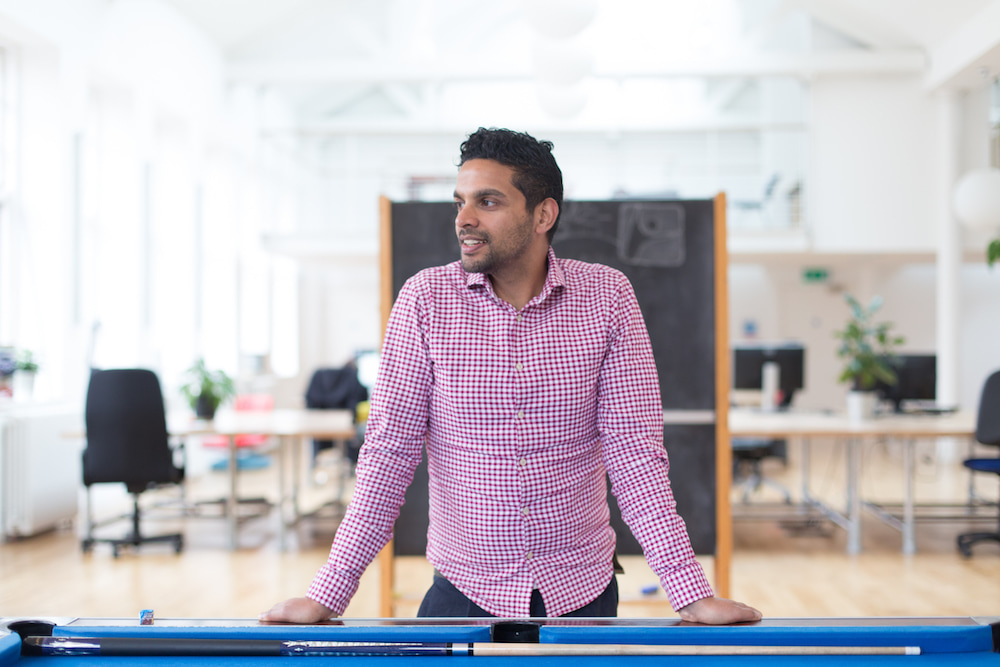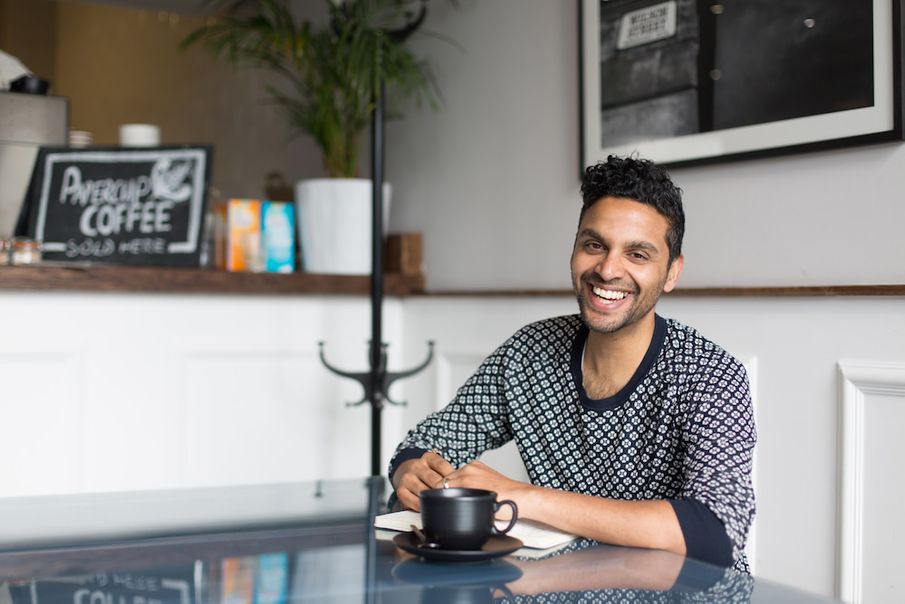Mindfulness expert Rohan Gunatillake invented a meditation app that became a worldwide hit. We asked how mindfulness fits into his business plans, and what he hopes to give back

Hello Rohan, can you tell us a bit about your background?
I was born and grew up in south-west London, the youngest of three children to a geography teacher mother and a civil engineer father. I went to university to study chemistry, but I also did a gap year for IBM in London.
When did you first get interested in meditation?
I was 22. I had started work in London in a fast-paced corporate job and my experiments in how to translate my traditional training into a 21st century context is what led to my creating the app, buddhify, and ultimately all my work with [his company] Mindfulness Everywhere.
Explain buddhify to our readers.
buddhify is a mobile app that helps people meditate wherever they are and whatever they’re doing. The number one reason that people who say they’re interested in meditation don’t actually do anything about it is that they feel they don’t have time. The reason buddhify helps so many people is that it makes mindfulness and meditation accessible.
How did it roll out?
I made the first version in late 2011 on a tiny shoestring budget. Amazingly, it got popular enough to break even within six weeks and I then took the profits from that app into the version of buddhify that’s on sale today, which came out in 2014. It has since been the number one health app in more than 45 countries and been downloaded around 300,000 times, clocking up more than 65 million minutes of meditation.
What are the core beliefs of your business?
We believe that many people are currently excluded from mindfulness products and services due to cost, delivery model, or aesthetic. We want to reduce those barriers. The world of mindfulness apps is currently quite pedestrian and overly fixated on formal meditation. Our mission is to bring some real creativity and design quality to it, while still retaining authenticity. We see and relate to the people who use our products as people.
What mindful benefits do you offer your staff?
We have daily practice sessions together and, depending on the particular person, their situation and their needs, we encourage them to deepen their wellbeing practices as part of their training allowance.
How about a staff retreat?
We’ve not done a team retreat yet but that sounds like a good idea!
Research suggests social media, and technology in general, is making us more unhappy. Why do you think this is happening?
Because the companies that make these products don’t care about our wellbeing. They only care about trapping our attention so they can sell that attention to advertisers, whatever the cost on our own minds. The good news is that technology doesn’t have to be like this. All it takes to change is for tech companies to actually give a damn and design products that actively look to support our wellbeing – or at the very least not deplete it.

Online privacy concerns everyone today.
Our general rule is that we avoid collecting personal data unless necessary (like emails for newsletters). We do have analytics, but these are anonymous so we can’t tie a particular behaviour to a particular person. We also never share any data with any third parties, because we’re not douchey.
How can we embrace technology to help us become more in tune with our life path?
There’s one simple thing we can do – include our technology lives as part of our mindfulness practice. So, while holding your phone, be aware of what the phone feels like – that is basic body awareness practice. When scrolling through your news feed, can you learn to send kindness to the people you see, whoever they are – that is basic loving kindness practice. When we start to include our devices and our screens and our content in the same way as we would our breath or our body or our thoughts in traditional mindfulness practice, then something magical happens: every app becomes a mindfulness app. That’s the kind of world I want to live in.
You recently wrote a book, Modern Mindfulness. What’s the central idea?
The idea is simple. The reasons people don’t think meditation is for them is that they think they don’t have time, it’s too hippy, or they have too active a digital life. I share how you can start practising mindfulness in any activity as long as you know the right techniques. The book is chock full of them!
Does your business have ‘giving back’ initiatives?
While we do make charitable donations, we believe that our core work is a social initiative. Through our products, many people around the world are improving their life in lesser or greater degrees, and as such, while we are definitely commercial, we are also deeply socially motivated. There are decisions we’ve made which have limited our earnings potential but we made them because in the end they were the right thing to. We also do non-commercial work, such as the Kara website we made for people affected by cancer. We made it because it was a topic we all felt strongly about and wanted to support, and it was possible due to the commercial success of our other products.

Finally, Rohan, what’s on your near horizon?
Two things. The first is that we are making a new version of buddhify. I’ve designed it with the intention that it’s the best mindfulness app ever made and I’m confident it will be that. The other thing is that as the father of an 18-month-old, I’m planning to enjoy being a dad as much as possible. He’s a lovely wee guy. Must take after his mother.
To find out more about buddhify, head to their website and follow them on twitter @buddhify


Comments